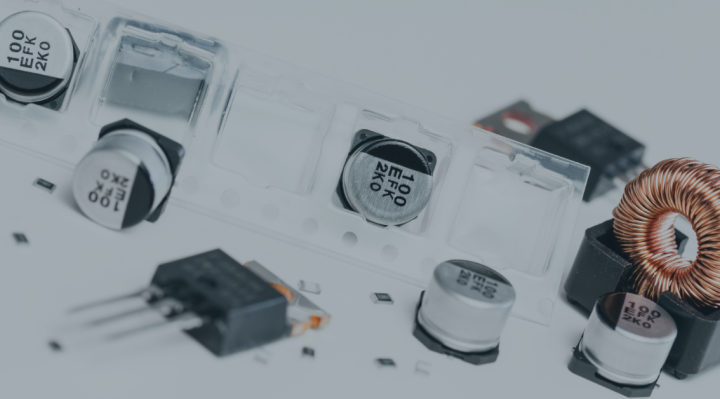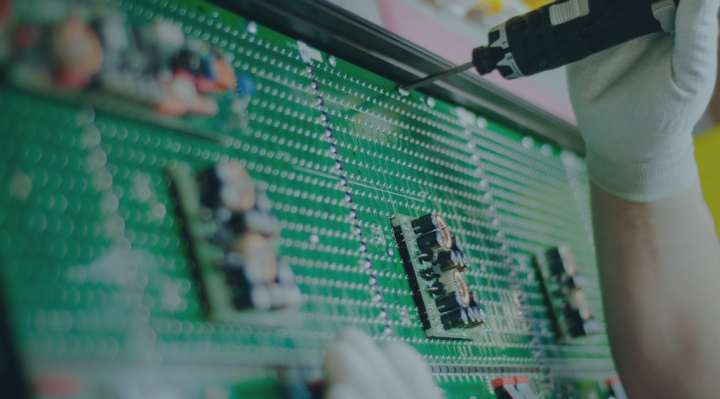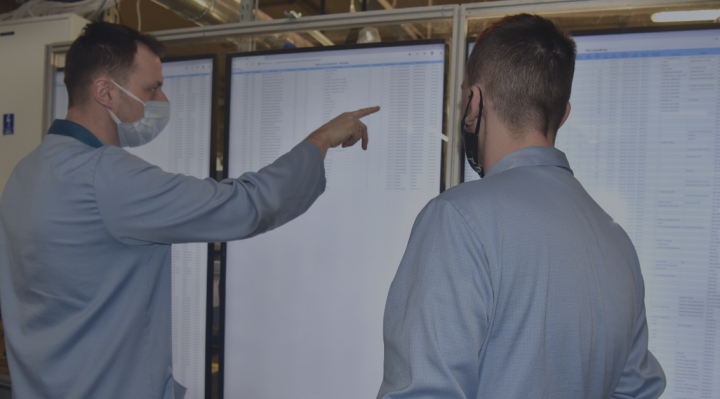The production of medical equipment is a subject to many registration regulations and obligations. Their main goal is the safety of patients. If any of the requirements are not met or the registration procedures are not completed, placing a product on the market is impossible.
For this reason, OEM manufacturers of medical devices who want to sell their products in the European Union as well as on worldwide markets, and look for EMS contract providers must take into consideration many significant factors that influence on their meeting the requirements included in the regulations. One of the ways to accomplish such a difficult task is to find an experienced and certified contract manufacturing service provider who operates in compliance with an ISO 13485 standard.
What is ISO 13485?
ISO 13485, Medical devices – Quality management systems – Requirements for regulatory purposes is an international standard defining requirements for a quality management system applied to the stages of design and development, manufacturing, installation and servicing of medical devices. It is also followed while designing and developing the services customers are provided with after purchasing medical equipment.
Put simply, ISO 13485 is a standard specifying detailed requirements concerning the implementation of a quality management system in a company or a unit engaged in designing, installing and servicing or manufacturing medical devices as well as providing services related to those devices.
The implementation of the quality management system indicates that a company or a unit has documented processes and procedures enabling them to achieve the objectives of ensuring quality. It also means that all activities are performed and supervised so that they could meet all the legal requirements and customers’ expectations as well as they guarantee continuous increasing of effectivity and efficiency.
Differences between ISO 9001 and ISO 13485
A basic difference between ISO 9001 and ISO 13485 is the range of those standards.
ISO 9001 is an international standard that specifies requirements for a quality management system which can be applied to every sector of the market, to every product and service as well as in every company.
On the contrary, ISO 13485 is a complex system of quality management dedicated to medical devices. It focuses mostly on compliance with provisions and is characterised by less flexibility when it comes to the organisation of processes.
Both standards impose on companies an obligation to introduce and maintain a quality management system as well as establish risk assessment procedures which, as a result, minimise the possible risk. Moreover, they enable companies to provide customers with high quality products.
There are, however, a few differences between these two standards. Although ISO 13485 is based on ISO 9001, in a few areas it includes extended requirements in comparison to ISO 9001. These are:
- documentation and data supervision,
- necessity to reach the environmental standards and control pollution in order to ensure the safety of a product,
- the kind of activities that have to be implemented to ensure product safety and satisfy customers’ expectations, for instance, standards regarding customer feedback, products monitoring and a way of dealing with faulty products.
ISO 13485 also defines in detail these factors which influence on the quality, such as validation of process, equipment, cleanliness and risk management in a whole product life cycle taking into consideration not only production but also supply chain management.
Why is holding the ISO 13485 certificate so important?
It should be remembered that on 26th May 2020 the transitional period for MDD/AAIMDD directives finished. They were substituted by a new European Union regulation - MDR (Medical Devices Regelation) - regarding the production of medical devices. The fulfilment of the requirements included in the directive is necessary to get the approval of medical devices and obtain necessary certificates allowing an entity to introduce their product to the market of the European Union.
According to the new regulation, entities responsible for the process of designing, developing and manufacturing medical devices are obliged, i.e., to possess quality management and risk management systems as well as systems enabling them to mark devices with unique identification codes (UDI), to prepare technical documentation, to apply compliance procedures and to have control systems implemented in such a way that allows them to supervise a product after placing it on the market.
Most of these requirements are included in ISO 13485. That’s why holding of a valid certificate ISO 13485 by a producer or a medical devices contract manufacturing service provider indicates that they meet all the requirements established by the regulation.
However, it is necessary to state that ISO 13485 is not a standard strictly dedicated to medical devices and does not define the quality of a product. It is a standard used to provide a high quality of a process, for example, design, developing or manufacturing. It enables a manufacturer to provide a customer with a final product that meets the prior assumptions and, thanks to this, the requirements of the regulation.
That is the reason why the choice of a contract service provider who possesses a valid ISO 13485 certificate enables an OEM producer to meet regulatory requirements. But this is not all.
ISO 13485 and contract EMS providers
In the sector of medical devices manufacturing certificates are of key importance because there are many regulations worldwide that allow to place a product on the market. In the European Union it is the aforementioned MDR regulation regarding medical devices but, for example, in the United States of America those are Current Good Manufacturing Practices whose respecting conditions the obtaining of appropriate FDA certificates. In case of the CGMP the possession of the ISO 13485 certificate indicates that a company dedicated to manufacturing or offering contract manufacturing services of medical devices meets the requirements of good manufacturing practices.
Some elements of the ISO 13485 standard enable manufacturers to fulfil regulatory requirements. They are also considered especially important in case of medical electronics contract manufacturing providers. These are:
Documented quality control processes regarding manufacturing
In case of every contract manufacturing of medical devices quality control processes are necessary to reach a high quality of a final product. The ISO 13485 certification requires documented quality control at every stage of the manufacturing process as this enables a manufacturer to prove that the device was made according to the regulation.
Documented traceability of materials and processes
ISO 13485 defines criteria regarding the process of documenting all materials used for manufacturing medical devices. It is especially important in case when a finished product must be withdrawn from the market or any of its components. It helps, as well as, locate the source of a component.
Concentration on risk management processes and project supervision
Procedures established while implementing ISO 13485 allow for quick solving of problems affecting manufacturing. For example, implementing an overview of all components used in a medical device prior to manufacturing can help identify these components which are in danger of decommissioning or negatively affect the quality of a final product.
Analysis and improvement
Possessing of the ISO 13485 certificate indicates that a manufacturer or an EMS provider has developed and maintained the standards of supervising and improving their efficiency based on a system of audits and feedback. The analysis of collected data allows to introduce, if needed, necessary corrections and improvements in already used processes.
The knowledge of other rules regarding the quality of medical devices
Every manufacturer or contract service provider of medical devices must comply with the requirements established by a number of regulatory organs in order to allow their customers to place a product on the market effectively. The ISO 13485 certificate increases the awareness regarding those requirements and the ways of meeting them.
Benefits resulting from the cooperation with a contract manufacturing service provider of medical devices holding the ISO 13485 certificate
Deciding for an EMS provider to produce medical devices, you can expect evident benefits in case of companies possessing the ISO 13485 certificate, such as:
- Full understanding of ISO 13485 requirements thanks to which an EMS provider is able to explain how the norm will influence the manufacturing of a given product.
- Strict supervision over current, reliable and available on request documentation of a device including information about all materials used for its production.
- Understandable and easy to supervise production processes, inspections and tests complying procedures that are effective in the industry.
- Experience in manufacturing many different kinds of medical devices – obtaining the ISO 13485 certificate indicates that an EMS provider has significant experience in the production of different kinds of devices.
- Cooperation with material providers who can guarantee that materials are compliant with the quality standards effective for medical devices. As a result, the highest possible level of the production quality can be provided.
In Assel we have obtained and maintained the ISO 13485 certificate for many years. We have also introduced and maintained a quality management system compliant with the requirements of this standard. Our processes are well-documented and enable us to trace with the use of audits the history of manufacturing any products. Due to the fact that we have been installing medical devices for a long period of time, we have gained significant experience regarding many different products. Our experience related to the cooperation with components providers as well as our knowledge regarding the market allow us to offer contract manufacturing of the highest quality.
Moreover, thanks to our experience in cooperation with various manufacturers of medical devices we are able to effectively support our customers in the certification process of finished products and prepare the documentation enabling them to obtain these certificates without any bigger problems.







